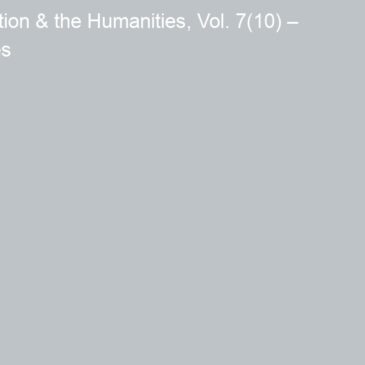Addictive behavior is an ongoing public health problem. Fortunately, there are many possible pathways to health and recovery – including somatic healthcare. However, practitioners’ interest in specializing in addiction often drops as their medical training progresses (Ritson, 1991).
This circumstance prompts a reconsideration of the teaching methods used to educate medical students about addiction. In this edition of Addiction & the Humanities, we present a paper that discusses potential benefits of using movies to educate medical students regarding drug addiction, and, hopefully, to facilitate students’ interest in addiction treatment (Cape, 2009).
Cape (2009) suggests that using movies to familiarize medical students with the major concepts of drug addiction problems could help deconstruct myths regarding addiction treatment and addiction-related behaviors. To illustrate, Cape suggests:* Educators might use the movie, The Lost Weekend (Wilder, 1945), to discuss the myth that it is possible to treat addiction just by “love”.
- Instructors might show the movie Drugstore Cowboy (Gus Van Sant, 1989) to illustrate some reasons why people start using drugs.
- Course instructors also could use movies to launch a discussion related to the nature of withdrawal. Many movies portrait an exaggerated and dramatic illustration of withdrawal symptoms (e.g., French Connection II (Frankenheimer, 1975) or Trainspotting (Boyle, 1996)) in response to stopping drug use, and provide an opportunity to highlight how they differ from reality.
- Similarly, movies might be useful educational devices for initiating a discussion of the consequences of addiction. For example, many movies suggest that drug users tend to commit violent crimes, (e.g., Nil by Mouth (Oldman, 1998)). However, drug users more often commit non-violent, rather than violent crimes (Gossop, Marsden, Stewart, & Kidd, 2003).
- Cape (2009) also suggests that movies that emphasize and clarify different concepts of addiction might encourage students’ interest in addiction medicine.
Discussion
Cape (2009) concludes his review with the suggestion that using movies in medical student education could help to increase interest in addiction medicine. However, science has not yet determined whether this is possible. As the authors note, although most of these movies do not provide an accurate picture of drug-related reality, such movies might facilitate the relevant discussion and by doing this, increase motivation to become addiction specialists.
It also is important to note that the paper does not report evidence that establishes that “myths” about addictions generate a lack of interest in becoming addiction specialists among medical students. Similarly, the authors do not raise other possible factors (e.g., low payment or job conditions compared to more popular medical specialties) that might influence such a relationship. Therefore, it is still premature to assume that watching and discussing addiction-related movies will improve the situation.
The effectiveness of using movies to educate medical students is also not clear. Entertainment education (e.g., education by watching movies) is a popular persuasive strategy that is especially effective at influencing behavior and overcoming counterarguments and resistance to persuasion (Moyer-Guse, 2008). Unfortunately, there is no empirical evidence that entertainment education is effective to provide factual knowledge about medical conditions, such as alcohol or drug addiction. Although the idea to incorporate addiction related movies into medical education is intriguing, there is not yet sufficient evidence to confirm that this would be an effective practice.
-Julia Braverman
What do you think? Please use the comment link below to provide feedback on this article.
References
Cape, G. (2009). Movie was a vehicle to teach addiction medicine. International review of psychiatry. 21, 213 – 217
Moyer-Guse, E. (2008). Toward a theory of entertainment persuasion: Explaining the persuasive effects of entertainment-education messages. Communication Theory 18, 407 – 425.
Gossop, M., Marsden, J., Stewart, D., & Kidd, T. (2003). The National Treatment Outcome Research Study (NTORS). Addiction, 98(3), 291–303.
Ritson, E. B. (1991). Undergraduate alcohol education. Alcohol & Alcoholism, 26, 273–275.





Kate January 30, 2012
I believe that movies is an effective tool to educate medical students regarding drug addiction and to stir interest for addiction handling.